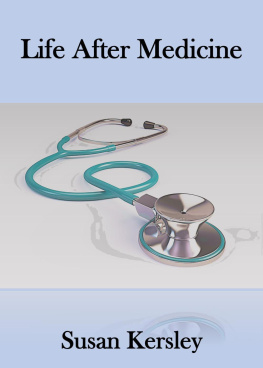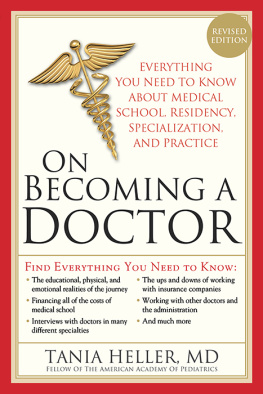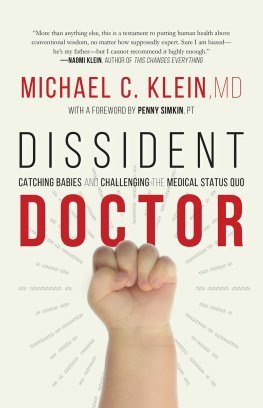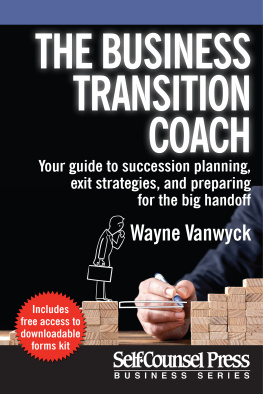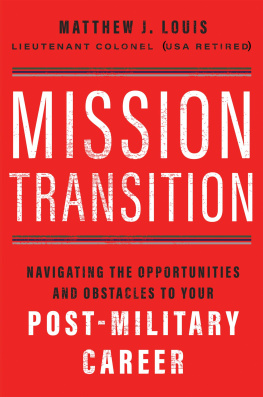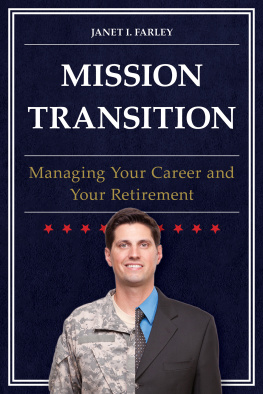Life After Medicine
Books for Doctors
Susan Kersley
Published by Susan Kersley, 2021.
While every precaution has been taken in the preparation of this book, the publisher assumes no responsibility for errors or omissions, or for damages resulting from the use of the information contained herein.
LIFE AFTER MEDICINE
First edition. May 5, 2021.
Copyright 2021 Susan Kersley.
ISBN: 978-1524232634
Written by Susan Kersley.
10 9 8 7 6 5 4 3 2 1
Table of Contents
Preface to the second edition 2021
S ince I wrote this book there has been a pandemic and the world has changed. Medical and health-care professionals have been under enormous stress and many have decided to leave the medical profession.
As it was when I left, this remains a big decision. I offer this book as a relevant resource for those who want a trouble-free transition.
Susan Kersley 2021
G iven that I have had a life after Medicine for the past 20 years, reading a book about it really took me back in time. All those challenges and emotions relating to moving a career forward into another phase were long forgotten. Yet it was cathartic to revisit them.
My own story is very different to Susans, but there are many themes within the book that I can identify with. For example, I had only worked in Medicine for six years (compared with 30 years for Susan) before I realised that the pathway I had chosen might not sustain me for a lifetime. Unlike Susan, I did not see my career transition as leaving anything. It was more of a gradual reinvention. Yet there were times when others views were extremely unhelpful or downright irritating, due to the sort of stigma or labelling that arises when one makes a decision to cease clinical practice. One is made to feel a little as if one has forsaken humanity. Responses like What a waste, all those years training, Arent you going to miss it? and Have you been struck off (to which the answer was no, no and no) were common. In retrospect, the most uninspired and deflating of them all was But surely doctors dont need career guidance, given that I then went on to make that very topic my own career within a business. It would have been so reassuring to have read this book back then.
Medics and their families, peers and society have a tendency to think that once a decision to do Medicine has been made, that is it (a bit like taking the cloth). However, there are times when there is a need either to accept that a wrong choice has been made, or to come to terms with the fact that it was the right choice at the time, but that is no longer the case. At other times moving on from clinical practice is simply a logical progression, letting go of one phase of life and moving on to another, such as pursuing some new career challenges. In addition, shedding the medical career mantle may be just as much of a hurdle for people who are considering early or normal timing of retirement as it is for those who make transitions earlier in their careers. None of these phases in life are going to be a doddle to navigate, and Susans book without doubt eases the passage.
So many books or guides have been written about how to get into Medicine or how to get ahead in your medical career it is both balancing and chastening to have a book that looks at the issues behind the why, how, when and wherefore of moving out of it. This book is mandatory reading for anyone with career misgivings or doubts, or who is in a position (forced or chosen) where it is time for clinical practice to take a back seat after being in the foreground. I am sure that in reading it, some doctors with career doubts will be reassured that their feelings are valid and that this alone will enable them to find creative ways of continuing in clinical work if that is right for them. So, paradoxically, it is a book that can help to restore or maintain some medical careers that might otherwise have hit the rocks. The book raises the question of whether having chosen, for any number of good or not so good reasons, to pursue Medicine as a career, one should continue blindly on whatever happens. The short answer is no, but this book provides a framework for evaluating this question for yourself. Those who are nearing or considering retirement will also find Susans comprehensive perspectives on ceasing clinical practice invaluable in the transition. Sonia Hutton-Taylor MBBS FRCS FRCOphth, DO, Independent Career Planning Advisor to the Medical Profession, Director Medical Forum
F irst, a big thank you to my coaching clients whom I have coached to make decisions about whether to continue their medical work with less stress, or to make a smooth transition into a life after Medicine. I also wish to thank the doctors who contacted me wondering whether they could enjoy a life after Medicine. Finally, thanks to my husband and family, who continue to offer me their love and support as I enjoy my life after Medicine.
https://susankersley.co.uk for more information
L ife after Medicine ? An oxymoron? I dont think so. I was 54 years old and had had enough of working as a doctor when I decided it was time to leave. Medicine had lost its appeal for me. Id had enough of busy clinics, demanding and aggressive patients, increasing paperwork, decreasing funding and low morale. There were too many rules and regulations, too many forms to fill in and too much talk of data collection and being on target.
Although the feeling had been building up for some time, my epiphany came when I knew it was time to stop moaning and take positive action, which for me meant leaving the medical profession.

